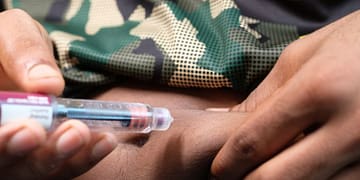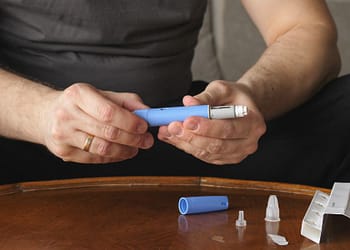- Cough, Mucus, and Respiratory Health: A Complete Guide - August 18, 2025
- Flogoprofen: what it's used for and how to take it - June 21, 2025
- What is Movicol oral solution in sachet used for and how to take it? - June 18, 2025
The Spanish Ministry of Health, through its Mental Health Commissioner, has strengthened its collaboration with the World Health Organization (WHO) to address the main challenges in mental health within the European Union, Iceland and Norway.
In the context of the recent catastrophes caused by the DANA in Spain, the Commissioner for Mental Health presented the Emergency Mental Health Units (USME)This pioneering international programme aims to offer specialised psychological support in critical situations.
With the support of the WHO, these Units will have teams trained to intervene in times of crisis, marking a milestone in the management of climate emergencies. Belén González, Commissioner for Mental Health, stressed that these units are a reflection of Spain's commitment to the fundamental rights of patients and to the quality of care in highly vulnerable situations.
Areas of action
At a meeting led by Ledia Lazeri, head of the WHO Regional Office for Europe, priorities were established that include strengthening human resources, promoting a multidisciplinary care model and respect for human rights.
Among the highlighted areas of action are: Mental health in the workplace, suicide prevention and deinstitutionalization of seriously ill patientsThese initiatives seek to align with international recommendations from the WHO and the European Commission, promoting community-based and inclusive care that puts people at the centre of the health system.
The WHO, for its part, presented the program “Addressing Mental Health Challenges”. Among its objectives are the evaluation of the current situation through surveys, strengthening training in human rights and community mental health, promoting primary care with a preventive approach and developing homogeneous quality indicators for the entire region.
Spain was recognised as a benchmark in suicide prevention and in the integration of workplace wellbeing, a recognition that underlines the importance of sharing these initiatives with other member countries.
Agreements
The meeting concluded with important collaboration agreements. Among them, priority was given to joint work in the iImplementation of emergency measures following natural disasters, the deinstitutionalization of seriously ill patients based on human rights, and the analysis and strengthening of human resources in the mental health system.
It was also agreed to organise workshops on suicide prevention and mental health at work, as well as to improve data collection and analysis in order to design more effective strategies.






